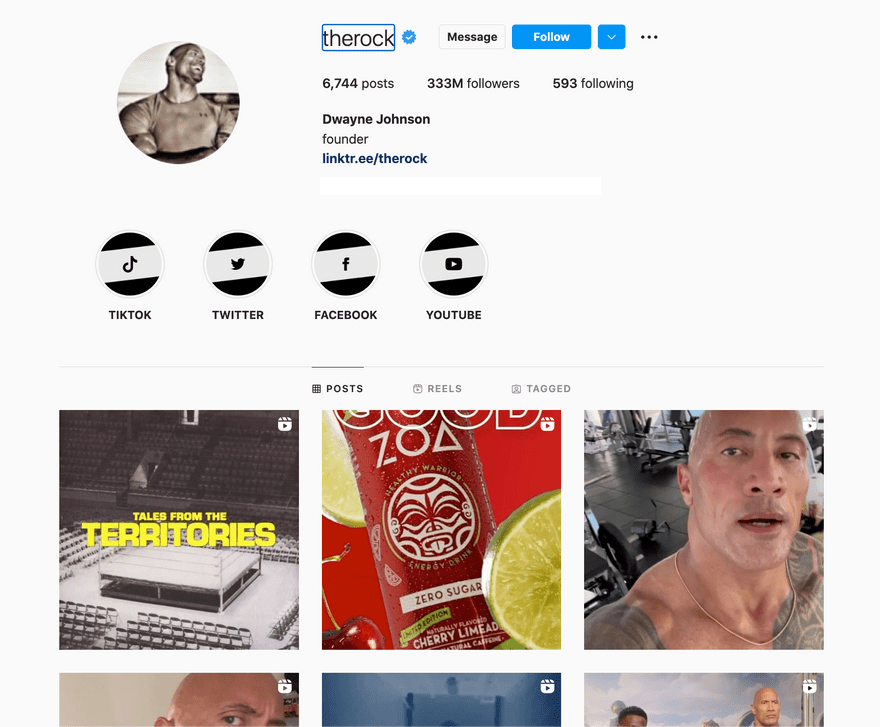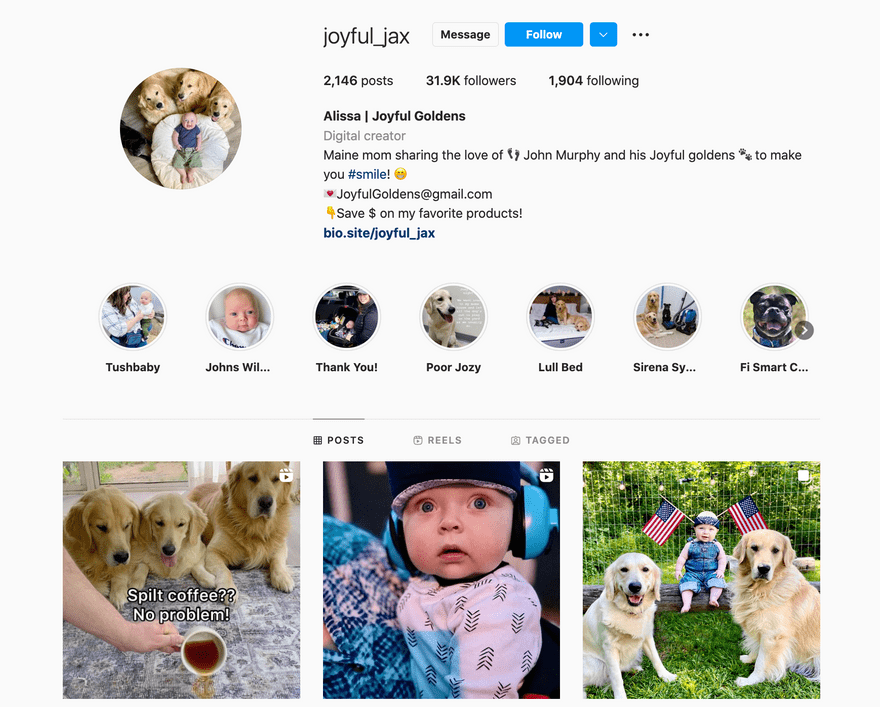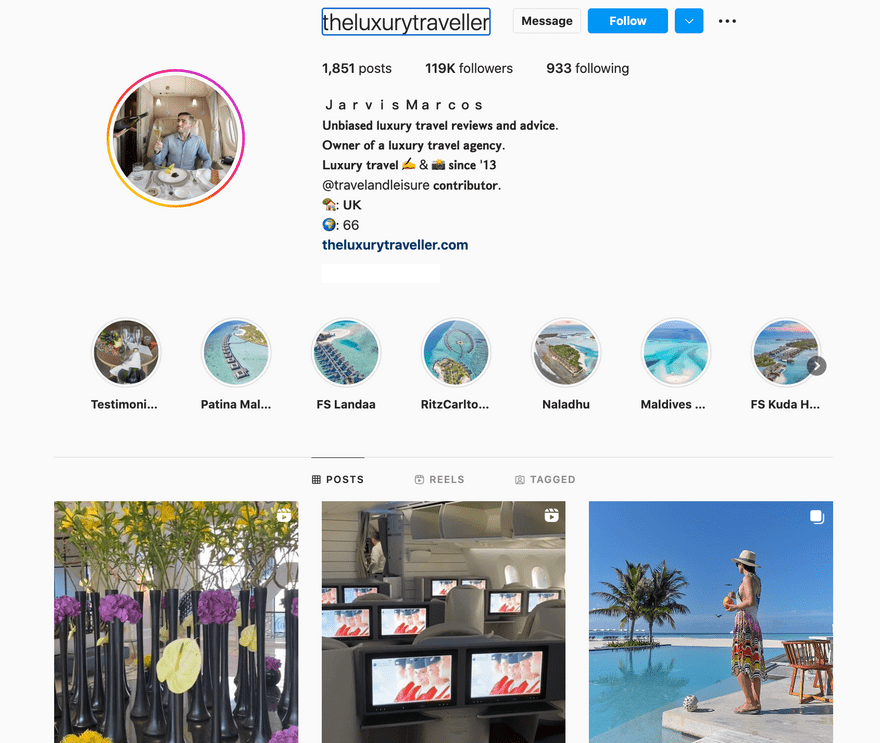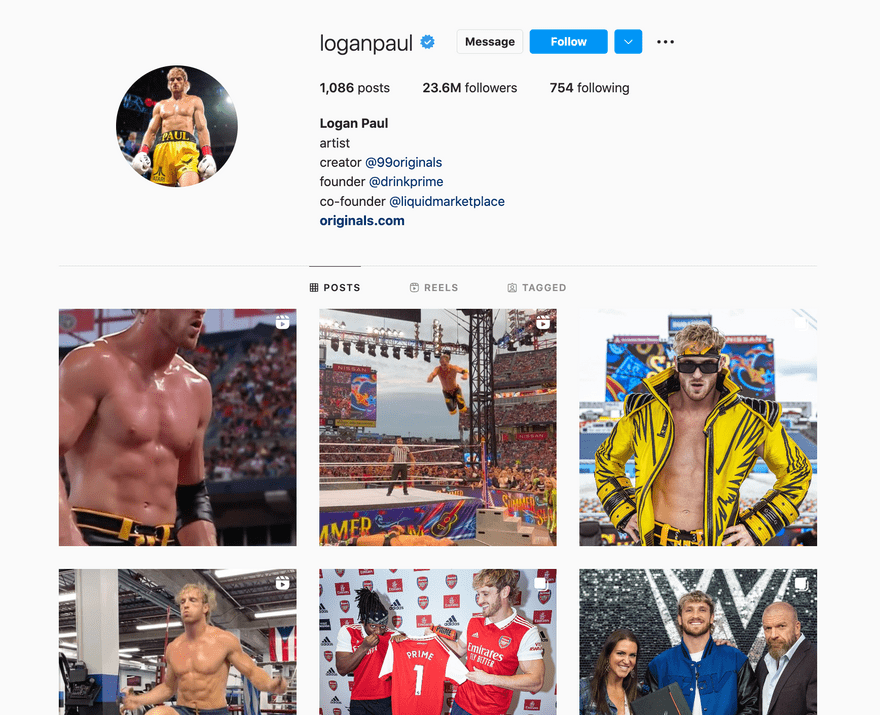Micro, Macro, Nano, Mega Influencers: Which Will Help You Grow?
Our independent research projects and impartial reviews are funded in part by affiliate commissions, at no extra cost to our readers. Learn more
There is a huge buzz around influencer marketing. This buzz only intensifies when you enter the online business space. Just scroll through the feed of any major online brand and you’re sure to find countless collaborations between influencers and that brand.
So, it’s hardly surprising to discover that brands are predicted to spend a gob-smacking $15 billion on influencer marketing in 2024.
With all this in mind, you might want to jump on the influencer bandwagon yourself. Or perhaps you already work with influencers but are keen to expand this aspect of your marketing strategy. Once you start down either of these paths you are going to be faced with a choice:
“Should I work with mega, macro, micro, or nano influencers?”
…or in fact, you may start by asking:
“What is the difference between micro, macro, nano, and mega influencers?”
In this article, we tell you everything you need to know to make an informed decision on the best influencers to drive sales and work with.
Ready to become an expert in influencer types? Read on!
What Is an Influencer?
Let’s kick this all off with an easy-to-understand definition of what we mean by the term “influencer.”
In its loosest sense, an influencer can be anyone who has influence over others. In reality, this could be anyone, as we all have some influence over our friends, families, and colleagues.
However, when we hear the term “influencer” used in modern marketing then we are typically referring to an individual who has built a large and engaged following on social media – giving them influence over that audience.
The Influencer Marketing Hub defines a social media influencer as:
“[…] people who have built a reputation for their knowledge and expertise on a specific topic. They make regular posts about that topic on their preferred social media channels and generate large followings of enthusiastic, engaged people who pay close attention to their views.”
Because influencers are experts in creating content that resonates with their audience, they are also commonly referred to as content creators.
Benefits of Working With Influencers
Working in collaboration with influencers is a great way to grow your online business. Here are just a few of the benefits of working in collaboration with relevant influencers:
- Reach a new, engaged audience
- Build brand awareness
- Tap into influencer expertise in your niche
- Leverage audience trust in influencers to make sales
- Develop quality content that can be used throughout marketing materials

Types of Influencer
Influencers can be categorized in many different ways, for example, you could define influencers based on factors such as:
- Niche/Interest
- Content Types (such as video, images, podcasts)
- Social Platform
- Personality
- Content Style
The most common way to categorize influencers is by their follower count. This is where terms such as micro, macro, and mega influencers come from. Using these terms to define the types of influencers you are looking to work with can be a smart way to help you plan key aspects of your campaigns such as budgets, the type of content you are looking to collaborate on, and how much time and effort you have to put in.
However, there are some limitations that you should be aware of when using follower count to categorize influencers.
Follower counts are no guarantee of success. This is because audience size doesn’t necessarily tell you how influential that person is. Someone with 5,000 highly engaged followers may be considerably more influential than someone with 50,000 followers that have low engagement.
The influencer’s niche will also come into play. For example, an influencer with 5,000 followers that specializes in an incredibly specific subject could be considered a pretty significant influencer in that space. On the other hand, an influencer with 5,000 followers that posts content on a more general subject such as “fitness” would certainly be considered nano or micro.
In the next section, we offer some insight into the different influencer tiers and how they can benefit your brand growth.
Nano Influencers
It might come as little surprise that nano influencers are the first influencer tier with the smallest follower count. In fact, nano influencers are the newest tier of influencers to establish themselves as a common part of many influencer marketing strategies. This is largely due to brands only recently recognizing the huge power of influencers with small, highly engaged audiences.
Nano influencers typically have 1,000 to 10,000 followers, although this can differ depending on the social platform and niche.
Some key benefits of working with nano influencers include:
- Typically achieving higher engagement rates than larger-scale influencers
- Finding it easier to build strong, trusting relationships with their audience
- Cost-effective
- Often excited to collaborate with brands
Some downsides to working with nano-influencers include:
- Small reach
- Can be less professional than larger influencers
Working with a nano influencer could cost around $10 – $100 per post (on Instagram).
Micro Influencers
Micro influencers have bigger followers than nano influencers and bring their own set of benefits and downsides to the table.

You could expect a micro influencer to have an audience in the 10,000 to 50,000 follower range.
The benefits of working with micro influencers are much the same as nano influencers, but also include:
- Higher levels of authority than nano influencers
- Greater reach than nano influencers
- Often more professional in their approach than nano influencers
Downsides are also similar to those of nano influencers. However, micro influencers are often more expensive to work with.
When working with a micro influencer you can expect to pay $100 to $500 per post (Instagram).
Read more about how to find micro influencers, and working specifically with TikTok micro influencers here.
Mid-Tier and Macro Influencers
Mid-tier and macro influencers are a tier above micro influencers and typically have follower counts in the 50,000 to 1 million range.
 Benefits of working with influencers in these two tiers include:
Benefits of working with influencers in these two tiers include:
- Much greater reach
- Often offer a more professional service due to experience and dedicated management
Downsides include:
- Much higher costs than working with nano or micro influencers
- Engagement rates are typically lower than smaller tier influencers
- High demand for collaboration can mean they are difficult to communicate with
Working with a mid-tier or macro influencer will likely cost in the region of $500 – $10,000 per post (Instagram).
Mega/Celebrity Influencers
Mega and celebrity influencers are the influencer tier with the biggest audiences.
Whether an influencer is considered as “mega” or “celebrity” depends on how they grew their audience. Typically, celebrity influencers are those who have earnt celebrity status outside of social media, such as actors or musicians. Mega influencers are typically those who have built their audience primarily through the content they post on social media.

Celebrity and mega influencers will usually have over 1 million followers.
Benefits of working with mega/celeb influencers include:
- Massive reach
- High authority
- Can help brands set trends
Downsides to working with this tier of influencers include:
- Very high rates (expensive)
- Often difficult to reach out to
- Engagement rates can be much lower than smaller influencers
When working with mega/celeb influencers you can expect to spend around $10,000+ per post (Instagram). In fact, some brand deals with this tier of influencers are reported to have paid upwards of $1 million per post.
Which Influencer Type Is Best For You? Summary
Knowing the benefits and downsides of each influencer tier will help you get to grips with which is best for helping you grow your online business. It is clear that many factors come into play, ranging from budgets to unique business situations.
For example, nano influencers can be a great choice for small or start-up businesses with limited budgets. Nano and micro influencers can also be a good option for those that want to boost engagement across the board and generate high volumes of content.
On the other hand, macro, mega and celebrity influencers can be the perfect option for those who want to get their brand noticed by the most people in a short period of time.
In reality, brands that want to get the best results will work with a range of influencer tiers. This will allow them to leverage all tier benefits as well as mitigating the downsides. Utilising influencers are a great way to have a strong pre-launch.
FAQs
- Nano influencers (1K – 10K followers)
- Micro influencers (10K – 50K followers)
- Mid-tier and macro influencers (50K – 1M followers)
- Mega/Celebrity Influencers (1M+ followers)
Leave a comment